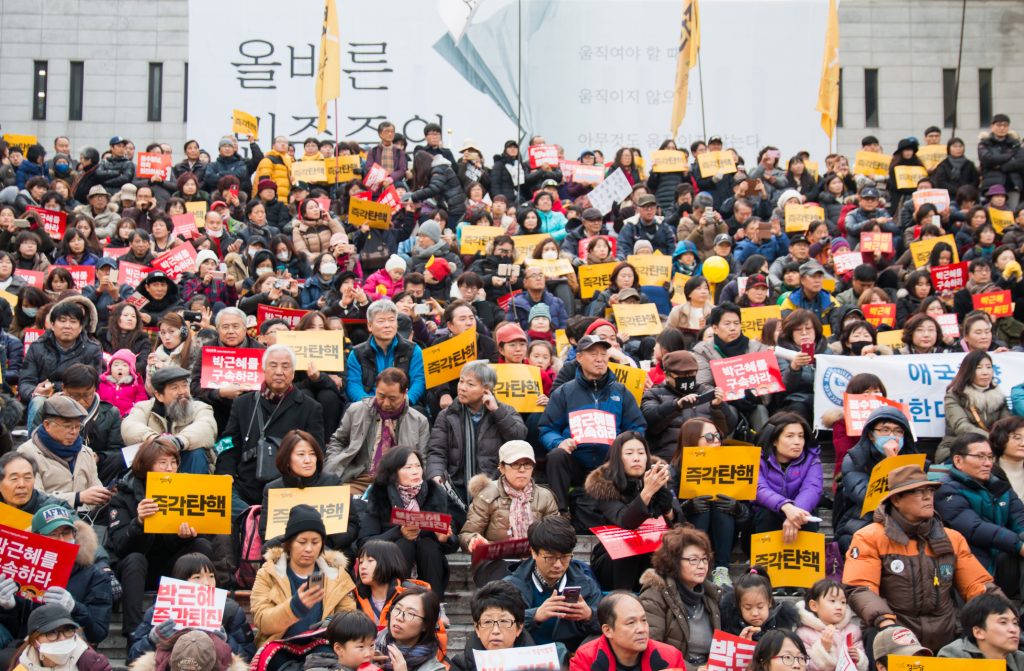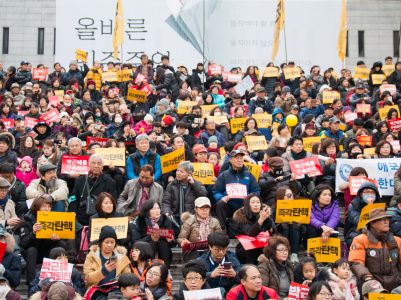By Eduardo António da Silva Figueiredo – Faculty of Law of the University of Coimbra (Portugal), G20 Interfaith Forum Working Group on Corruption
– – –
Corruption is a complex phenomenon, with a ‘variable geometry’, that can be found worldwide (both in so-called ‘developed’ and ‘non-developed’ countries). It threatens the construction of societies based on the values of human dignity, rule of law, democracy and justice, and endangers the most basic rights and freedoms of the human person.
How Corruption Violates Human Rights
The negative consequences of corruption for human well-being are widely known. Corrupt acts jeopardize economic development; the functioning and legitimacy of political institutions and processes; and the rule of law.
Numerous scholars have also stressed the strong link between corruption and human rights — emphasizing the detrimental effects of corrupt practices to the protection and enjoyment of humanity’s most basic rights and freedoms. As stated by Olajobi Makinwa, the United Nations Global Compact Africa Chief: “when there is corruption, human rights disappear”.
Corruption may also send us even further off-track in our collective efforts to achieve the Sustainable Development Goals (SDGs). That’s why target 5 of SDG 16 (“Peace, Justice and Strong Institutions”) stresses that it is absolutely crucial to substantially reduce corruption and bribery in all their forms.

Corruption’s Resurgence Under COVID-19
As stated by António Guterres, Secretary-General of the United Nations, “corruption is criminal, immoral and the ultimate betrayal of public trust. It is even more damaging in times of crisis – as the world is experiencing now with the COVID-19 pandemic.”[1]
When the pandemic began, previously existing corruption clearly limited the world’s capacity to respond to the outbreak. Some studies have already shown that corruption in healthcare services severely weakened healthcare delivery, contributing to COVID-19 deaths—especially in countries with low economic and financial resources. Therefore, corruption represents a real threat to Universal Health Coverage (UHC).
The pandemic has also served as a catalyst for corruption, creating new opportunities to exploit weak oversight and inadequate transparency, diverting funds away from people and their most basic needs. Grand and petty corruption practices are, in this context, finding new ways to proliferate through all sectors of society. On the highest level, one must consider corruption-related incidents perpetrated by high-level government officials, deflecting huge amounts of resources supposedly dedicated to the pandemic. On other levels, one may note that low wages and poor working conditions can motivate health workers to engage in informal payments, overprescribing, favoritism, and nepotism practices. Patients can also engage in corrupt practices— for example, bribing officials to evade quarantine. Also note that, as expected, COVID-19 related corruption in service delivery primarily affects groups who are most reliant on health and other public services: women, children, elders, poor people and minorities (especially migrants and refugees).
Corruption in Vaccination Efforts and Procurement
Another challenge that has arisen during the pandemic is corruption in public procurement, namely healthcare procurement. As stressed by the u4 Anticorruption Research Center, “the sense of urgency, coupled with the relaxation of checks and balances, increasing demand, the shortages of essential medicines, PPE, ventilators, and medicines caused a strain in global supply chains, making them vulnerable to corruption.”[2] This has inclusively led to price gouging or the proliferation of falsified or counterfeit goods in many countries.
Recently, COVID-19 vaccines have also brought new opportunities for corruption to blossom. Considering the urgent demand for a vaccine, in most cases, vaccine R&D processes lacked transparency. Therefore, each of the development phases (research, patent application, preclinical testing, clinical trials, registration) were considerably exposed to corrupt practices, multiplying health risks and contributing to the lack of public confidence in the vaccine.
The recent purchase of COVID-19 vaccines has also opened another avenue to procurement corruption, considering the absence of competitive processes and the vaccine’s overall rarity—which limits the detection of corrupt practices between government officials and suppliers (pharmaceutical companies). Challenges are equally complex in relation to the allocation and distribution of COVID-19 vaccines, with corruption being the main cause for the perpetuation of inequality in access to vaccines worldwide. Theft; lack of compliance with allocation criteria; lack of information; inadequate communications on safety; exigence of unauthorized fees for vaccine administration; or people jumping the queue are just some examples of corrupt practices that can affect people’s fundamental human rights and even lead to unnecessary deaths.
Considering all these challenges – and noting that this is only a small part of a wider and greatly devastating picture—robust systems of accountability, transparency and integrity must be created as soon as possible to combat corruption, namely controlling how resources are being used in order to safeguard people, communities, and their rights.
Why Civil Society and Religious Actors Matter in the Fight Against Corruption
In general, civil society has an important role to play in the prevention and repression of corruption—especially considering its potential to observe and control corruption levels worldwide, as well as its considerable capacity to demand the adoption of adequate and effective measures to promote greater transparency and accountability.
In this context, religious leaders and faith-based communities and organizations can play an important role in the fight against corruption, making clear statements condemning these nefarious practices, urging governments to take legislative and administrative action against all forms of corruption, and actively exposing and denouncing corrupt actors.
As stated by Marshall and Van Saanen, “because they have special ‘expertise’ in values and integrity, and because of their extensive presence and reach, faith institutions, leaders and networks offer a powerful potential force in raising governance standards in the work of development.”[3] In order to reinforce the role and influence of religious organizations in the pursuit of “peace, justice, and strong institutions,” it is also crucial to develop adequate prevention and solutions for scandals involving corruption inside or around these same organizations[4].
Addressing Challenges and Developing Answers
Due to COVID-19, old problems like corruption pose new and complex challenges. As soon as possible, answers must be developed in order to assure due respect, protection and fulfilment of the human rights of every person. The IF20 Working Group on Corruption, through the leadership of Prof. Dr. Jónatas E. M. Machado, is working hard to develop policy recommendations concerning “Governance and Accountability: Fighting Corruption in the COVID-19 emergencies.” Let’s get to work!
– – –
Eduardo António da Silva Figueiredo is an Assistant Professor of the Section of Juridical-Political Sciences of the Faculty of Law of the University of Coimbra (Portugal), where he is currently a PhD student in the area of Public Law. He is also an Associate researcher at the Centre for Biomedical Law of the Faculty of Law of the University of Coimbra (CDB/FDUC). During the last four years, Eduardo Figueiredo has investigated and written on the themes of human and fundamental rights, medical & pharmacy law (genetics, nanotechnology, robotics), mental health law, animal welfare and corruption (in this last case, being relevant to highlight his book entitled: “The Anti-Corruption Principle and its role in the protection and realization of human rights”, published by Editora Brasílica, based in Campinas, S. Paulo, Brazil).
[1] António Guterres, “Statement on corruption in the context of COVID-19: Corruption is the ultimate betrayal of public trust”, available at: <https://www.un.org/en/coronavirus/statement-corruption-context-covid-19>.
[2] U4 Anti-corruption Research Center, “Basic Guide: Covid-19 and Corruption”, available at: <https://www.u4.no/topics/covid-19-and-corruption/basics>.
[3] K. Marshal & M. Van Saanen, Development and Faith: where mind, heart, and soul work together, Washington D.C.: World Bank, 2007, p. 231, available at: <https://openknowledge.worldbank.org/handle/10986/6729>.
[4] Heather Marquette, “Whither morality? ‘Finding God’ in the fight against corruption”, in RaD – Religions and Development Research Program, Working Paper 41, 2010, p. 19, available at: <https://core.ac.uk/download/pdf/1631149.pdf>.


